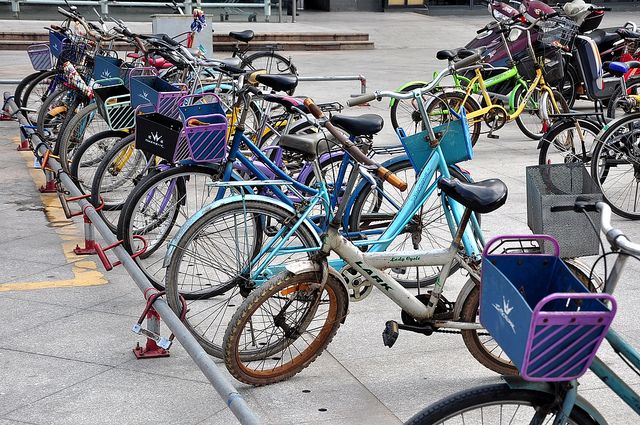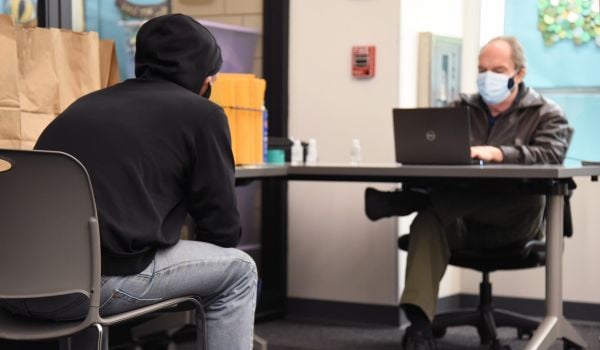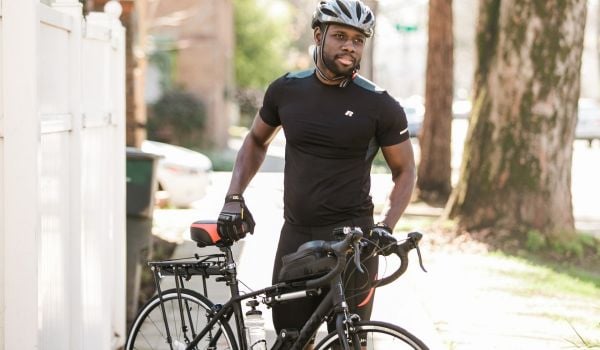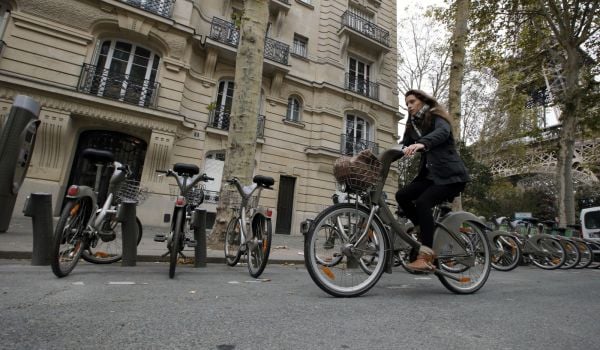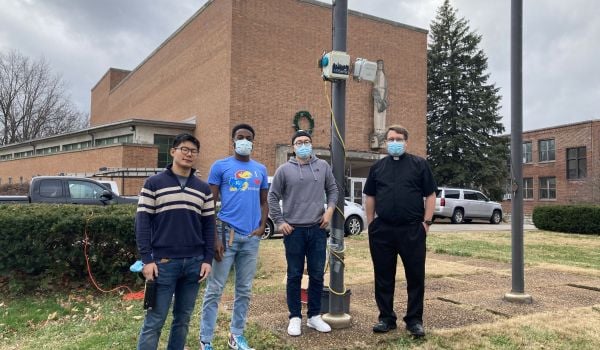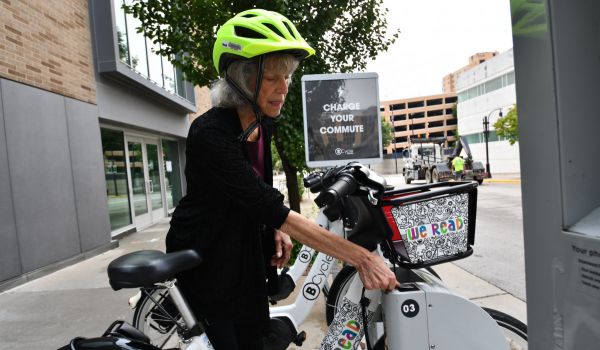Urban Agenda is an occasional series written by young elected leaders in cities around the country. Each installment will address the challenges and triumphs experienced by this next generation of local groundbreakers.
For our inaugural column, we have Scott Ogilvie, a former bike mechanic and graphic designer who was elected to the St. Louis Board of Alderman last year, representing the Missouri city’s 24th Ward.
In the year and a half that I’ve served on the St. Louis Board of Aldermen, I’ve thought quite a bit about how to replicate what happened in my election, in which a progressive, young, previously unknown candidate upset an experienced yet vulnerable opponent despite being outspent more than four to one. The last seven or eight weeks of the campaign consisted of incredibly hard work, but it was pulled off by a team who were anything but political professionals: A bike mechanic and sometimes graphic designer, a hairstylist, and a corporate shoe designer, along with volunteer support down the homestretch.
Why doesn’t something like this happen more often?
There is, no doubt, considerable interest in urban and civic issues among people in their 20s and 30s. Correcting the missteps of the auto culture that transformed urban areas over the last 50 years is perhaps at the zenith of that interest. It seems, however, to trend decidedly toward advocacy, commentary and critique.
On the other hand, I consistently attend neighborhood and party meetings — the foundations of civic engagement — at which I’m the youngest person in the room, sometimes by 10 years but just as frequently by 20 or 30. The bloggers, prolific online, can be hard to find in person.
Perhaps the interest in advocacy and critique, but commensurate disinterest in participation, stems from the fact that municipal government doesn’t seem to respond very effectively to popular demands for improved urban design, transportation, preservation and transparency. At least, not here in St. Louis. As often as not, decisions are introduced as a fait accompli, with little hope of a deliberative legislative or planning process shaped by — or even aware of — public opinion. At times, there is so little public discussion or reporting on legislation and development activity that it is left to a few careful online watchers to break news to dedicated audiences.
Many of the critiques are spot on. Much of the transportation, pedestrian, zoning and development advocacy is equally pertinent. But where are the results? Good-faith efforts to change the conversation and educate elected officials from the outside tend to be imperceptibly slow. Sometimes, you just have to speak the lingua franca.
My new catchphrase has become “A dime of campaign money is worth a dollar in advocacy.” Rather than educate local leaders not naturally inclined toward your issues, why not influence them politically? Or replace them? It may be cheaper than non-profit based advocacy, and I can almost guarantee it will be more effective, as advocacy tends to preach to the choir and rarely measures results systematically.
A natural response to a frustrating system might be to give up on it, write it off and believe that nothing will change until the system changes. But who is going to change the system? I heard a local politico, with whom I generally don’t agree, once utter a truism: “The system is always working for the people already in power.”
Change requires more than an email or blog post. It requires engagement with the establishment. In areas with high barriers to entry, that might mean getting a foothold by fundraising for a political action committee. Raising a few thousand dollars and getting a seat at the table with some key elected officials is a great place to begin. So is helping to bankroll the campaign of an upstart. In areas with lower barriers to entry, it might mean running for office or playing a key role in another candidate’s campaign.
I don’t like it, but we have a system that runs on money. Is it ugly? Yes. Is it frustrating? Yes. Is it fair? No. But in the absence of your money, backed by your interests, someone else’s money is running the show. They won’t stop because you don’t like it. In local St. Louis politics, that tends to be attorneys, developers, construction companies, trade unions, public employees, gas stations, convenience stores and the occasional retired billionaire. You won’t be able to dominate that conversation, but you should at least participate in it.
I’ve had many conversations with young, civic-minded people turned off by this idea. People who would rather forget making change if it means bending their ideology or venturing out of their comfort zone. Unfortunately, they will continue to work in a sphere that barely, if ever, intersects with the sphere of people developing (or more often, not developing) policy and spending public money. As long as those spheres remain separate, policy will be the domain of the people already in power and the people already keeping them there. There is a cottage industry of civic criticism in St. Louis with enough energy to bend policy more to its liking. If only it were organized in a way that demonstrated its strength.
A few months into my position I found a plan to amend our zoning code to implement a Minneapolis-like bike parking requirement for new construction. At a meeting where I brought it up, the mayor’s Director of Streets declared the policy idea dead. He was against it, and I knew no one else was interested enough to shepherd the idea through the legislative process.
With a few changes, I got the bill passed. Advocates had only needed an ally in the right place. They had done the hard work of developing a plan, but not the work to develop the right relationship with a decision maker. There was no one to take it to until I got elected and stumbled upon it.
Bike parking isn’t groundbreaking material, but in St. Louis it represented one notable step forward. One lesson I may have known vaguely before, but much more keenly now, is that progress almost never comes from an accident or natural evolution. It requires constant pressure, new ideas and sustained engagement to implement new policies and spending priorities. If you sit frustrated on the sidelines, that pressure is impossible to apply.
There are no guarantees that engagement will pay off. I could just as easily have lost my election. But non-engagement guarantees failure. As I like to say, “Its easier to control the thermostat once you have the keys to the house.”
Interested in writing an Urban Agenda column, or know someone who would? Drop us a line at ariella@americancity.org.

